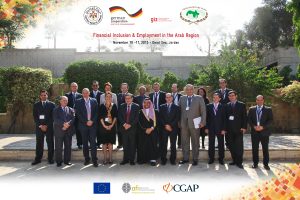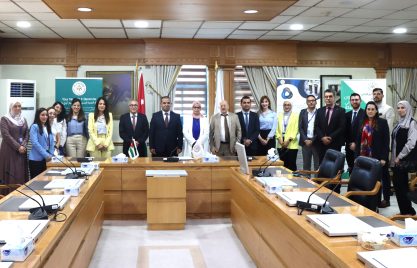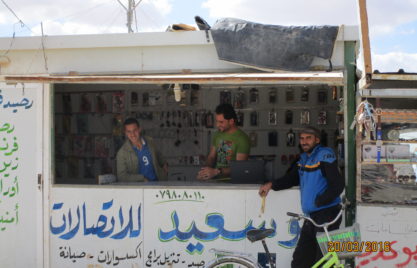From November 10-11, 2015 policymakers and financial sector experts from the region and beyond at the ‘Financial Inclusion and Employment in the Arab Region’ conference moved forward the regional policy dialogue about strategies and reforms to improve the financial and occupational perspectives of people and businesses.
What unites financial policy making in the Arab world? Participants at the recent regional, high-level policy conference, hosted by the CBJ, the AMF and GIZ on behalf of BMZ, would have given a consistent answer: Arab countries need more inclusive growth and more jobs. This is something that more inclusive financial sectors promise. Financial inclusion has therefore become a priority for Arab policymakers.
“There is a great need for financial inclusion in the Arab region…: excluding the Gulf countries, only 21 percent of the adult population has access to financial service.” H.E. Dr. Ziad Fariz, Governor of the Central Bank of Jordan (CBJ)
The expansion of financial inclusion can positively impact economic growth, employment and financial sector stability. This is why, at the said conference, the CBJ announced the development of the national strategy for financial inclusion, and the AMF and GIZ agreed to jointly assist Jordan and other Arab partner governments in their change processes towards more inclusive financial sectors.
In line with global trends, Arab financial policymakers could effectively and responsibly expand the financial access frontier in their countries through national financial inclusion strategies (NFIS). Although there is no one-size-fits-all solution, NFIS ideally embrace innovative technology, financing of small and medium-sized enterprises (SMEs), and financial consumer protection as key components.
Increased financing of SMEs in particular positively impacts job creation and employment. Yet, around 19-23 million enterprises in the Arab region face a total funding gap of USD 240 billion. By strengthening regulatory frameworks, the financial infrastructure, and the capacities of providers, public and private sector players can join forces to overcome the supply and demand side challenges to SME finance.
Arab countries have taken first steps in advancing financial inclusion. Many are at early stages of structuring and coordinating their activities at a national level. Conference participants expect that more countries in the region will follow the Palestinian and Jordanian example: By formulating NFIS, they can guide all relevant stakeholders towards enabling more people and firms to make use of responsible financial services for their social and economic well-being.
By Atilla Yuecel
Read full announcement here.




